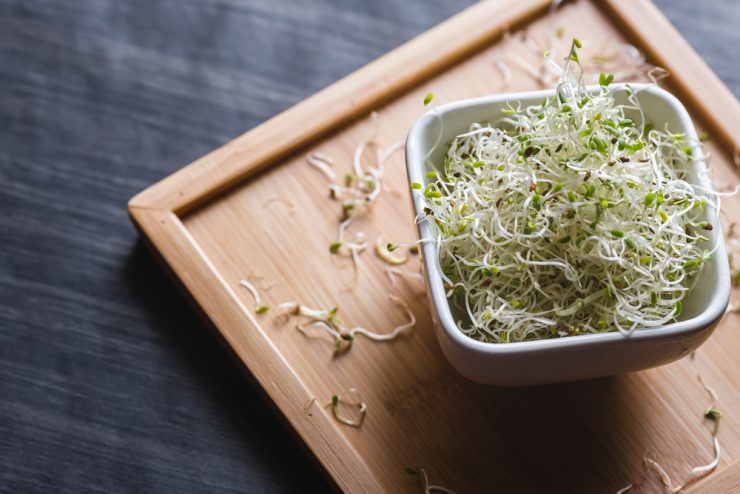Medical herbalist Gabriella Clarke introduces some of the health benefits of alfalfa.
Considered a trendy superfood, alfalfa sprouts can now be found in the fridges of most health food shops and good supermarkets. Rich in vitamin K, vitamin C, vitamin B1, vitamin B2, beta- carotene, folate and the minerals magnesium, iron, manganese and copper, they pack a powerful nutritional punch. And if that’s not enough to tempt you to include them in your summer salad bowl, read on for some of the health benefits of eating alfalfa.
HIGH CHOLESTEROL
Alfalfa appears to reduce blood cholesterol levels probably by interfering with the absorption of cholesterol in the gut. Studies[i] have shown that alfalfa can lower total cholesterol by up to 26%. It also raises the levels of HDL or good cholesterol.
DIABETES
Alfalfa may help people with diabetes manage their blood sugar levels, as it has been shown to reduce blood glucose[ii]. It has also been shown to help the liver regenerate and increase the number of cells responsible for insulin production in the pancreas.
PROBLEMS WITH DIGESTION
Alfalfa is a great source of fibre and also has an anti-inflammatory action so it can be great for improving digestion and constipation. It may also help reduce bloating and pain[iii].
ASTHMA
Alfalfa was traditionally used for asthma and other respiratory problems such as bronchitis. It may also be used in cases of respiratory viruses.
BLADDER PROBLEMS
Alfalfa has been used traditionally for bladder problems, including kidney disease, prostate problems and bladder infections. Although the clinical evidence is scant, this could be due to its diuretic properties.
If you aren’t keen on eating alfalfa, it is available as a tablet in good health stores.
WATCHPOINTS
- You should avoid alfalfa if you are taking blood-thinning medications, such as warfarin.
- Alfalfa may reduce the effectiveness of oestrogen contraceptives in large doses.
[i] https://www.ncbi.nlm.nih.gov/pubmed/3606731
[ii] https://www.ncbi.nlm.nih.gov/pmc/articles/PMC4609025
[iii]https://www.sciencedirect.com/science/article/pii/0377840188900624?&utm_medium=53888
























I have been surfing online more than 3 hours today, yet I never found any interesting article like yours. It is pretty worth enough for me. In my opinion, if all web owners and bloggers made good content as you did, the internet will be much more useful than ever before.